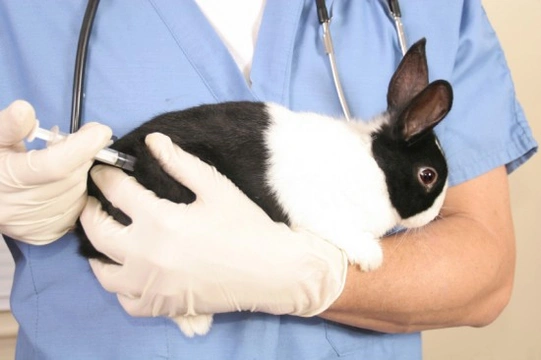
Vaccinations in Rabbits: Essential Protection Guide
When it comes to vaccinations in rabbits, many think only of dogs, cats, or horses. However, rabbit vaccinations are just as essential to protect these gentle pets from serious health risks. Both indoor and outdoor rabbits face threats from diseases that can be fatal without proper immunisation.
Is Rabbit Vaccination Really Necessary?
Vaccinations may sometimes be mistaken as a means for vets to generate income, but the true purpose is safeguarding animal welfare. These vaccines have drastically reduced the visible prevalence of severe diseases and have saved countless lives across species, including rabbits. Despite lower disease cases thanks to vaccinations, unvaccinated rabbits remain vulnerable to deadly infections. Immunising your rabbit is a responsible act that greatly improves their chance of a healthy, happy life.
What Diseases Do Rabbit Vaccinations Protect Against?
Rabbits are primarily vaccinated against two major viral diseases: Myxomatosis and Rabbit Viral Haemorrhagic Disease (RVHD), which includes two strains, RVHD1 and the more recent RVHD2.
Myxomatosis: Symptoms, Spread, and Impact
Myxomatosis is a devastating viral disease known by many rabbit owners. It often begins with swollen, puffy eyes sometimes referred to as "sleepy eyes," swelling around the head, lips, and inside the ears. Inflammation around the genitals and anus is also common. As the disease progresses rapidly, blindness and severe pain follow within 24 hours, making feeding challenging. While survival beyond a few days is rare, some rabbits can endure weeks with intensive care, though often left with lasting scarring.
This disease spreads through the rabbit flea (Spilopsyllus cuniculi), a species distinct from those affecting dogs and cats, as well as other blood-sucking insects like mosquitoes. The virus can survive winter within these vectors. The incubation period after an infected insect bite ranges typically from 5 to 14 days, with only a minute amount of virus needed to infect the rabbit.
Rabbit Viral Haemorrhagic Disease (RVHD): Symptoms and Transmission
RVHD is an often fatal viral infection in rabbits and is highly contagious. Symptoms include refusal to eat, bleeding from the nose, high fever, and internal bleeding affecting the lungs, gut, and urinary system. It is estimated that many rabbits die suddenly without owners realising the cause.
RVHD spreads mainly through direct contact between rabbits, wild and domestic alike. Indirect transmission can also occur via people, contaminated clothing, shoes, or dirty hutches and bedding.
Vaccination Types and Schedule
Vaccination Protocols: Most veterinarians in the UK recommend a combined "triple vaccine" protecting against Myxomatosis, RVHD1, and RVHD2. Vaccinations can begin as early as 4 to 5 weeks of age.
Initial vaccination involves two doses, spaced 2 to 3 weeks apart, followed by annual boosters to maintain immunity. In areas of elevated disease risk, some vets advise a Myxomatosis booster every six months.
Recent advances provide a single vaccination that covers both major diseases, but your vet will determine the best approach and timing. It's essential that rabbits are not exposed to infection risks until at least 14 days after completing vaccination to ensure effective immunity.
Upon vaccination, a certificate will be issued detailing the date and type of vaccine administered. This certificate is important for boarding or holiday care arrangements, as many facilities require proof of vaccination.
Additional Protection: Insect Control and Environment
Vaccination is only one part of a comprehensive strategy to protect your rabbit. Controlling insect vectors — especially fleas and mosquitoes — is vital. Spot-on flea treatments and sprays specifically formulated for rabbits are available and should be used under vet guidance.
Outdoor rabbits should be kept away from wild rabbits to reduce disease transfer risk. Keeping bedding dry discourages mosquitoes and other biting insects, further reducing the chance of infection.
While no vaccine can guarantee 100% protection, vaccination combined with good husbandry practices offers the best possible chance at preventing these deadly diseases.
Consult Your Vet Regularly
Every rabbit's circumstances differ. Your veterinary surgeon is your best resource for advice tailored to your pet's health, age, and local disease prevalence. Annual health checks offer opportunities to discuss vaccination timing, booster needs, and any new vaccine developments.
Remember, responsible pet ownership includes staying informed and proactive about your rabbit’s health needs, ensuring they have the longest, healthiest life possible.
For those looking to find a rabbit, consider adopting or buying from reputable breeders who adhere to strict health and welfare standards, including vaccination policies.
Learn more about rabbits for sale and make an informed choice.



